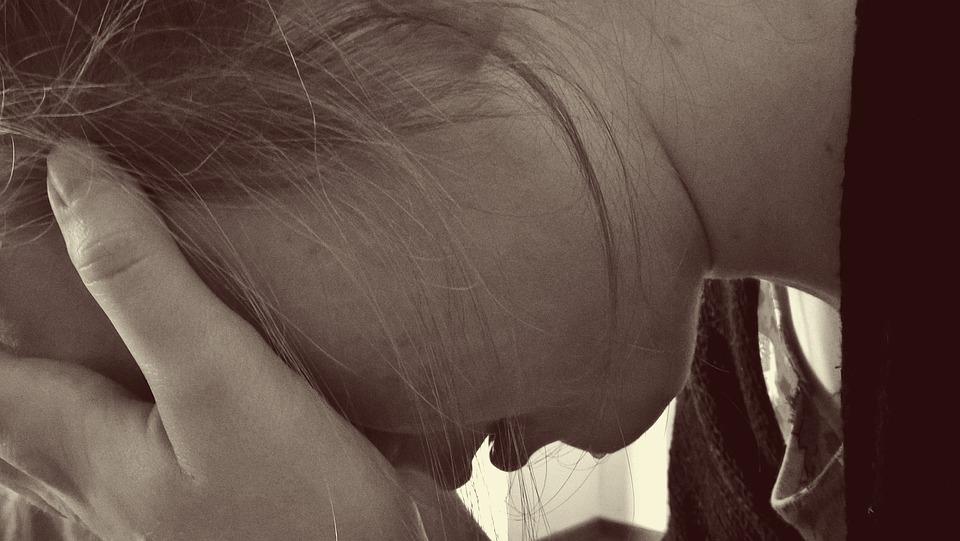
Common Sense Media reports that half of the girls and 1/3 of the boys as young as 6 years old start to have body image concerns. Young children claim they think they should be thinner, even if their weight and current body size are appropriate and considered healthy for their age group.
Even preschoolers notice that their peers, teachers and other adults are critical of other people and judge the way they look, dress and behave based on their weight or size. Social media, celebrities, pop culture icons, and even teen idols unjustifiably emphasize weight over health.
Alarmingly, 80% of American 10-year-old girls have been on a diet, which suggests that young kids are either dissatisfied with their looks or have an unhealthy body image.
Body image is an inseparable part of our identity — it can affect the way we act and interact with others, it can boost self-esteem and help us build up the confidence to face daily challenges head-on. Interestingly, building a positive body image starts in early childhood, when little children first notice the similarities and differences between them and their peers.
On the other hand, having a distorted body image can have a number of consequences that decrease quality of life, which can lead to psychological issues taking a toll on self-worth and self-love.

The role of the parents is to nurture a healthy body image. Luckily, there are simple, yet effective steps you can take when you notice that your children start to have concerns about their body. Read on to find out what they are.
Leading by example
There is no denying that children learn by repetition. They mimic the behaviors of their peers, idols and, especially, parents. It is your duty to show your daughter or son that you appreciate the way you look and do not struggle with unhealthy body issues, even if there might be days when you do not have anything to wear that compliments your figure or that your wrinkles and gray hair are popping out more than ever.
Communicate positive message about your own and your partner’s body image, so that your child learns that it is only natural to love yourself the way you are.
Regularly pay heartfelt compliments shared for the sole purpose of uplifting, encouraging and supporting your loved ones.
Do not compare yourself to TV personalities – they have the entire crew to make them look their best when they make a red carpet appearance.
Experimenting with different styles
Your child may feel that being a bit overweight means that they will not be able to find fashionable, chic and stylish clothes that will allow them to express themselves.
The reality is significantly different – the clothing industry understands the needs of all customers, no matter their size. There are multiple modern fashion houses, clothing lines and designer stores that cater to the needs of plus size clients.
Use that to your advantage and encourage your children to express themselves visually and help them find their personal style. It may take some time, but be patient and allow them to experiment with different looks.
Taking care of the body
It often happens that developing good self-care habits helps tremendously with building a healthy body image. Show your kids that maintaining proper hygiene can significantly improve the way they feel in their skin.
Acne is a common problem among teenagers, therefore take preventive measures to introduce anti-acne routine and encourage your children to use skincare products aimed at their skin problems.
Remind them to moisturize, use sunblock and keep effective hair care routine. At the same time, teach your children to embrace diversity and show them that each body develops at a different speed, therefore they should not feel bad for looking different from their peers.
Combating cyberbullying
It often happens that a child thinks there is something wrong with his or her weight and size because of bullying in real life or over the Internet. In this day and age, cyberbullying takes many forms – children are exposed to hurtful comments on popular social media platforms, forums, peer groups and other places on the Internet.
As a parent, pay special attention to warning signs that your child might have been a victim of fat-shaming or cyber bullying. Children may be hesitant to tell adults that someone bullies them online, but when you notice that your son or daughter avoids using the computer in your presence, seems nervous, irritated or sad when getting an IM, withdraws from social life, or stops using their computer or smartphone entirely, it is high time to act and have a nurturing and judgement-free conversation to nip cyberbullying in the bud.
Having a hobby
Although modern culture pays a lot of attention towards the image, parents should stress the importance of pursuing a passion and having a creative outlet.
Encourage your children to take up a hobby of their choice, so that they can learn new skills and develop youthful curiosity. They can take part in competitions to test their knowledge or show off their artwork at local cultural centers.
When they notice that they are good at something they love and people appreciate their efforts, they will become more confident and self-aware.
Keeping a healthy lifestyle
If your children do not struggle with health issues that prevent them from being physically active, encourage them to take up regular exercises, let it be fitness, team sports, swimming, martial arts, or dancing.
Regular physical activity combined with a nutritious diet is a perfect recipe for health and happiness. Exercising not only strengthens the muscles and firms the body but also releases serotonin and dopamine responsible for happiness levels.

There are numerous activities you can do together as a family, which is important for building stronger familial bonds and staying fit together.
In the era of perfectly photoshopped centerfolds and magazine covers, parents have an enormous responsibility to teach their children the importance of having a positive body image. With the help of these 6 tips, this task just became much easier.
About Ariana:
Ariana Williams is a pedagogy graduate and a blogger who enjoys writing about topics connected to children. Whenever not writing, Ariana might be found spending time with her family or tutoring kids. Feel free to visit her at @AriWilliamsAri.















